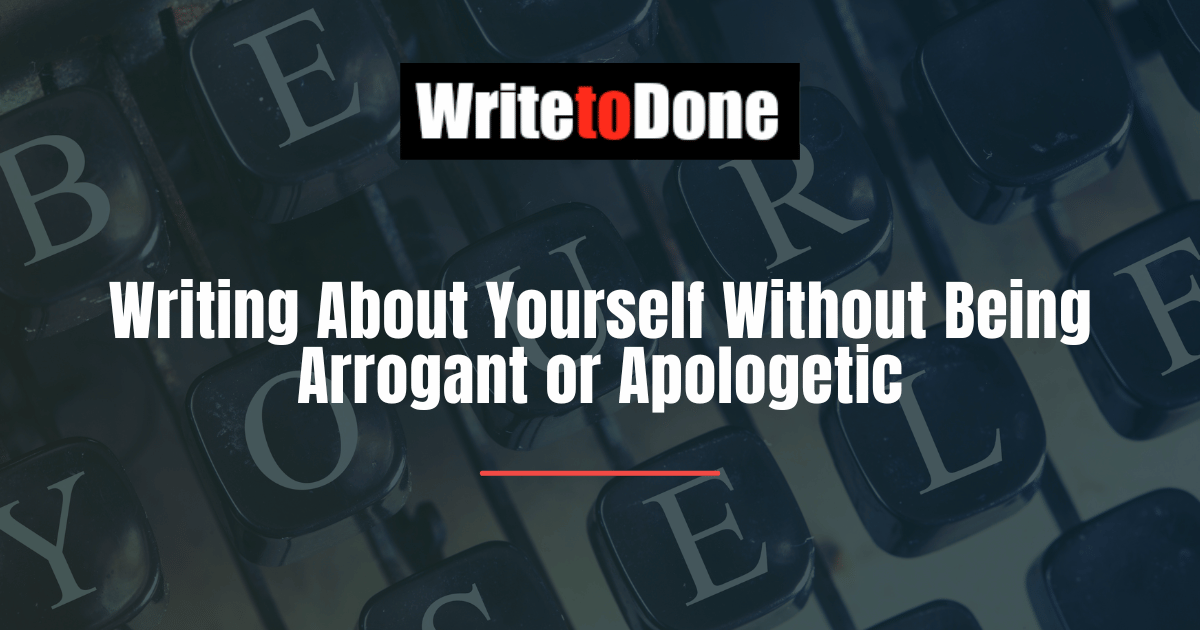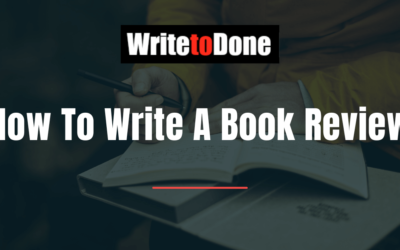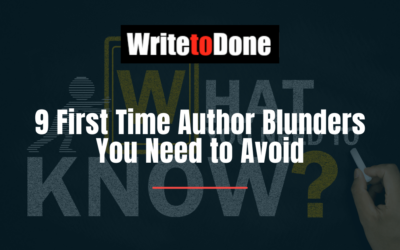I wrote my first sales page in the third person. I was young, naive and desperately wanted to be taken seriously — and I thought ‘we’ sounded more professional than ‘I.’ After all, it would be sheer arrogance to assume that anyone wanted to hear what ‘I’ had to say.
The ebook sold okay, but I got an email at least a thousand words long, lambasting me for claiming to be a ‘we’ when it was so obvious that it was just me.
Who Wants to Write About Themselves?
Writing what you know is supposed to be easy. What do we know better than ourselves?
In theory, writing about ourselves should be easy. But even if you’re a full-time writer, pounding out thousands of words at a time, writing about yourself can be incredibly difficult.
A short bio can be agonizing, while a sales page about your expertise can be the cause of writer’s block so severe that you never want to write again.
After staring at a blank screen long enough, it seems tempting to put the bare bones and an apology for even trying to convince the reader that you’re worth the time it takes them to scan your words.
Of course, this isn’t universal: There are a few lucky people around us who can pour words about their experiences and expertise on to the page without a qualm. Those are the folks that are prone to a very different temptation. Arrogance can creep into such writing very easily.
I’m not about to point to any particular person as apologetic or arrogant, but think about the about pages and sales pages of some of the bigger bloggers you know. There are some blogs where it’s obvious that the person writing is able to just start typing and work with what comes out, not always toning down any arrogance that shows up. There are others where, especially in early posts, you can see more starts and stops — more thought and stress goes into the work. The really great writers leave some signs of thought in their work (even if we’re just talking about a simple bio), while polishing off rough corners. Those are almost always writers who have been at their craft for years.
There are others where, especially in early posts, you can see more starts and stops — more thought and stress goes into the work. The really great writers leave some signs of thought in their work (even if we’re just talking about a simple bio), while polishing off rough corners. Those are almost always writers who have been at their craft for years.
Learning to Write About Yourself in Less than a Decade
If you don’t have years to dedicate to honing your writing craft, there are techniques that you can use to learn the skill significantly faster.
One of the first issues you have to resolve is getting comfortable with telling other people how awesome you are. I’m not the sort of person to get particularly concerned with the more mystical aspects of writing, but when it comes to writing about yourself, you have to be in the right mental space. There are lots of options, but since we’re all different, you ‘ll likely need to go through some trial and error to find the right way to see yourself.
- Write a list of why you’re the perfect expert or writer for this project.
- Meditate before you write.
- Ask other people to tell you why they think you’re good at what you do.
- Recite some affirmations.
Personally, I find that writing out a bulleted list is one of the best ways to tackle this sort of problem. That’s because not only does it remind me of why I’m a good fit for what I’m working on, but it also gives me a head start on the actual writing. I may have to rephrase things to avoid any awkward arrogance, but that’s easier than starting from a blank page.
Next, you need to build awareness of who will be reading what you’re writing. If we’re just talking about a bio to attach to the end of a blog post, it’s generally not tough: the audience is the same as the post you’ve just written. They’re going to want to know if you’ve done anything else on a similar topic and where they can find more of your excellent writing, provided that the post was good.
But if we’re talking about something a little more in-depth — like sales copy — your reader probably has a very specific problem or concern that she’s hoping that you (and whatever you’re selling) can fix. You have to be aware of those concerns and figure out how you can reassure your reader. A ‘Mama Knows Best’ attitude isn’t going to cut it. You’ve got to put together something that directly addresses potential problems and doesn’t solely rely on expressing your own abilities.
Write out the questions you think someone would have, if you need to, and answer them. Include examples from your own experiences if you can (and if they’re a little humbling, so much the better).
The more you can focus on the reader and getting across what she needs to know, the less you need to worry about your own voice. You’re an expert (otherwise, why would you be writing), but you’re also more concerned with making the reader comfortable than with talking about your own greatness.
Write in Drafts
Especially with the fast pace of writing online and publishing instantly, it’s easy to get out of the habit of writing first for review and then for the general public. But when you’re writing about yourself, you’re literally too close to the topic. Even if you’re comfortable with the process, it’s easy to make assumptions that someone will know exactly what you’re thinking when they read your work.
That makes writing a first draft and showing it to someone especially important. We can get stuck inside our own heads far too easily, but if you can find someone who preferably has no involvement in the project at all to look over what you’ve written, you can avoid a lot of the potential problems that go along with writing about yourself.


















